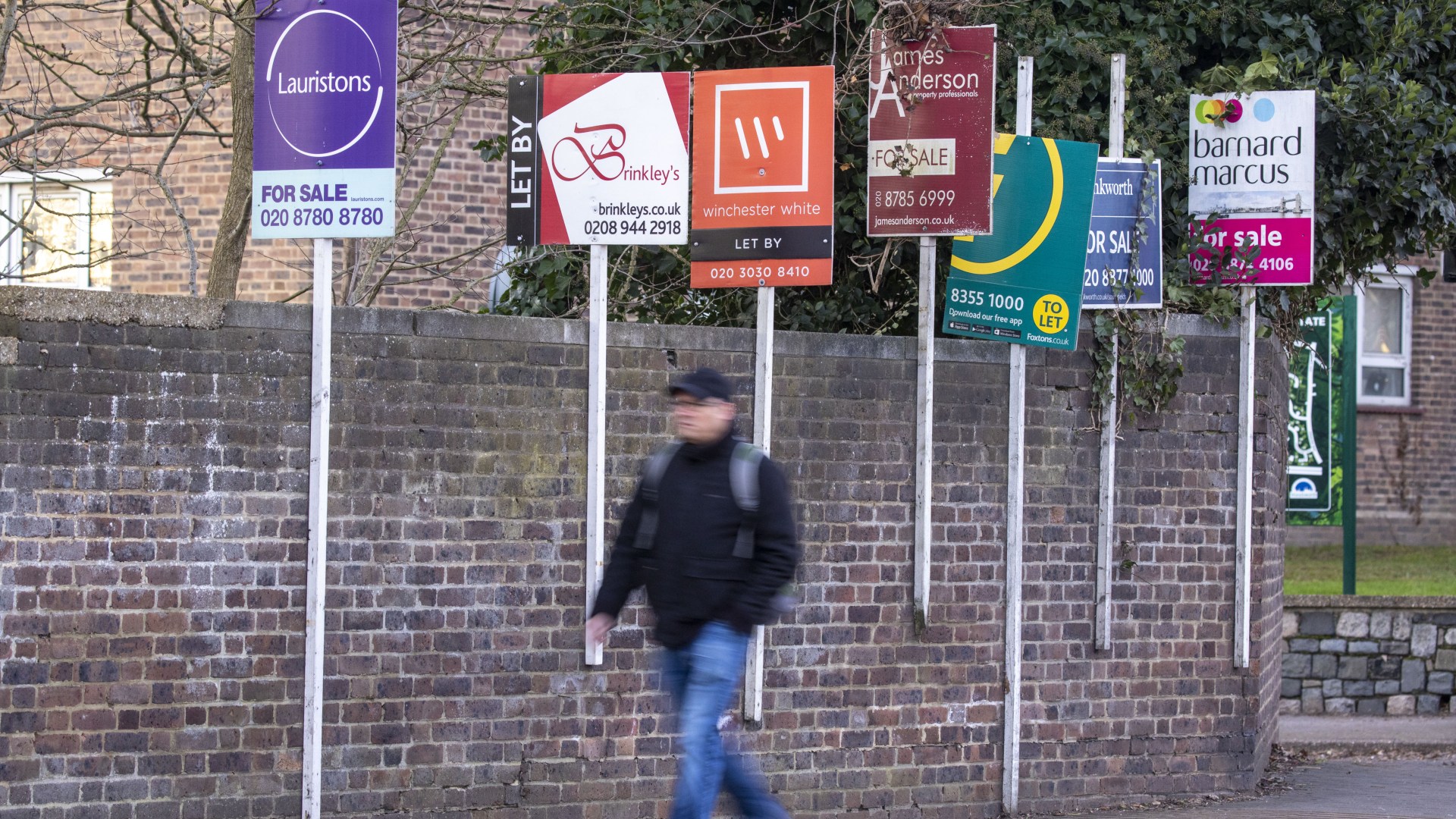FIRST-TIME buyers are to get a “leg up” onto the housing ladder under plans announced by the Chancellor.
Rachel Reeves has set out sweeping changes for those looking to buy a house.
This includes a new permanent mortgage guarantee scheme, which will encourage more low-deposit mortgages for first-time buyers.
Meanwhile, more mortgages will be available at over 4.5 times a buyer’s income, following recommendations from the Bank of England to loosen lending rules.
This will create more than 36,000 additional mortgages for first-time buyers over the first year, the Government said.
The shakeup comes ahead of the Chancellor’s Mansion House speech later today, with major details now revealed by the Treasury.
Britain’s biggest building society Nationwide also announced plans last week to make its “Helping Hand” mortgage scheme for first-time buyers available to people on lower incomes.
From Wednesday, eligible first-time buyers can apply for Nationwide’s Helping Hand mortgage with a £30,000 salary, down from £35,000, and joint applicants with a £50,000 combined salary – down from £55,000.
It has been estimated that this will support an additional 10,000 first-time buyers each year.
In her Mansion House speech, the Chancellor is expected to tell the City of London: “I welcome the recent changes the (Bank of England) Financial Policy Committee has announced to the loan-to-income limit on mortgage lending, which the PRA (Prudential Regulation Authority) and FCA are implementing immediately.”
She will hail the reforms as having an “instant impact for consumers, such as Nationwide offering its Helping Hand mortgage to more first-time buyers – supporting an additional 10,000 each year.”
The changes sit alongside the creation of a permanent mortgage guarantee scheme, pledged by Labour in its manifesto, and a review of Financial Conduct Authority (FCA) lending rules that could allow prospective buyers’ records of paying rent on time to be used to show they can afford mortgage repayments.
The reforms have been welcomed by mortgage experts, who say they will make a huge difference to Brits on lower incomes.
Mortgage technical manager Nicholas Mendes, of broker John Charcol, said: “The decision to widen access to Nationwide’s Helping Hand mortgage by lowering the income thresholds will offer an immediate and practical benefit to a group of people who have often found themselves just on the wrong side of affordability criteria.
“For someone earning £30,000 on their own, or couples on a combined income of £50,000, this change could be the difference between continuing to rent and finally being able to move into a home of their own.
“It will also bring particular value to those in stable, lower-paid roles that are so essential to society but are often overlooked by traditional lending models.
“People working in care, education, retail, and public service are typically in long-term employment and manage their finances carefully, yet they are the very people who have found the doors to homeownership closed to them.
“This reform suggests that financial discipline is being recognised more broadly than by salary alone, and that is a very welcome shift.”
Brian Byrnes, head of Personal Finance at Moneybox, added:”It is encouraging to see steps being taken to support first-time buyers. Enabling people to borrow more is not a silver bullet.
“What first-time buyers truly need is not just the ability to take on more debt, but meaningful, long-term support to help them start saving and investing earlier in life so they can build up that all-important deposit.”
What is the permanent mortgage guarantee scheme?
The permanent mortgage guarantee scheme will see the state offer to help first-time buyers and home movers with deposits as low as 5%.
First announced in last month’s Spending Review, it is set to replace the previous mortgage guarantee scheme, which came to an end on June 30.
The scheme provides a guarantee that the Government will cover some of a lender’s losses if a borrower can’t afford to repay their mortgage and the home is repossessed.
What else will be announced by the Chancellor?
Ms Reeves will announce this evening that red tape will be ripped up to help the City kick-start economic growth and investment.
Meanwhile, plans to cut the tax-free allowance for cash ISAs have been put on hold by the Chancellor, after speculation that reforms to the savings account would also be announced.
Cash ISAs currently offer tax-free interest on savings of up to £20,000.
The Chancellor has now scrapped the plans following backlash from banks, building societies and campaigners, and will instead focus on encouraging more people to invest in stocks and shares.
In her Mansion House speech this evening, she is expected to add: “This is the foundation of an economy, and a country, that is more active and more confident.
“Where people and businesses look to the future and talk about hope about opportunity. Assured of their own capability, and of the ability of our country to boldly face the challenges that lie ahead.
“And certain of the prize if they succeed. Of higher wages and higher living standards.
“The renewal of Britain in every home and every high street. To put it simply: a Britain that is better off.”
The Chancellor’s speech comes after Andrew Bailey yesterday told the Times he was ready to cut interest rates, which currently stand at 4.25%, if the job market slows down.
How to get the best deal on your mortgage
IF you’re looking for a traditional type of mortgage, getting the best rates depends entirely on what’s available at any given time.
There are several ways to land the best deal.
Usually the larger the deposit you have the lower the rate you can get.
If you’re remortgaging and your loan-to-value ratio (LTV) has changed, you’ll get access to better rates than before.
Your LTV will go down if your outstanding mortgage is lower and/or your home’s value is higher.
A change to your credit score or a better salary could also help you access better rates.
And if you’re nearing the end of a fixed deal soon it’s worth looking for new deals now.
You can lock in current deals sometimes up to six months before your current deal ends.
Leaving a fixed deal early will usually come with an early exit fee, so you want to avoid this extra cost.
But depending on the cost and how much you could save by switching versus sticking, it could be worth paying to leave the deal – but compare the costs first.
To find the best deal use a mortgage comparison tool to see what’s available.
You can also go to a mortgage broker who can compare a much larger range of deals for you.
Some will charge an extra fee but there are plenty who give advice for free and get paid only on commission from the lender.
You’ll also need to factor in fees for the mortgage, though some have no fees at all.
You can add the fee – sometimes more than £1,000 – to the cost of the mortgage, but be aware that means you’ll pay interest on it and so will cost more in the long term.
You can use a mortgage calculator to see how much you could borrow.
Remember you’ll have to pass the lender’s strict eligibility criteria too, which will include affordability checks and looking at your credit file.
You may also need to provide documents such as utility bills, proof of benefits, your last three month’s payslips, passports and bank statements.
Do you have a money problem that needs sorting? Get in touch by emailing money-sm@news.co.uk.
Plus, you can join our Sun Money Chats and Tips Facebook group to share your tips and stories








